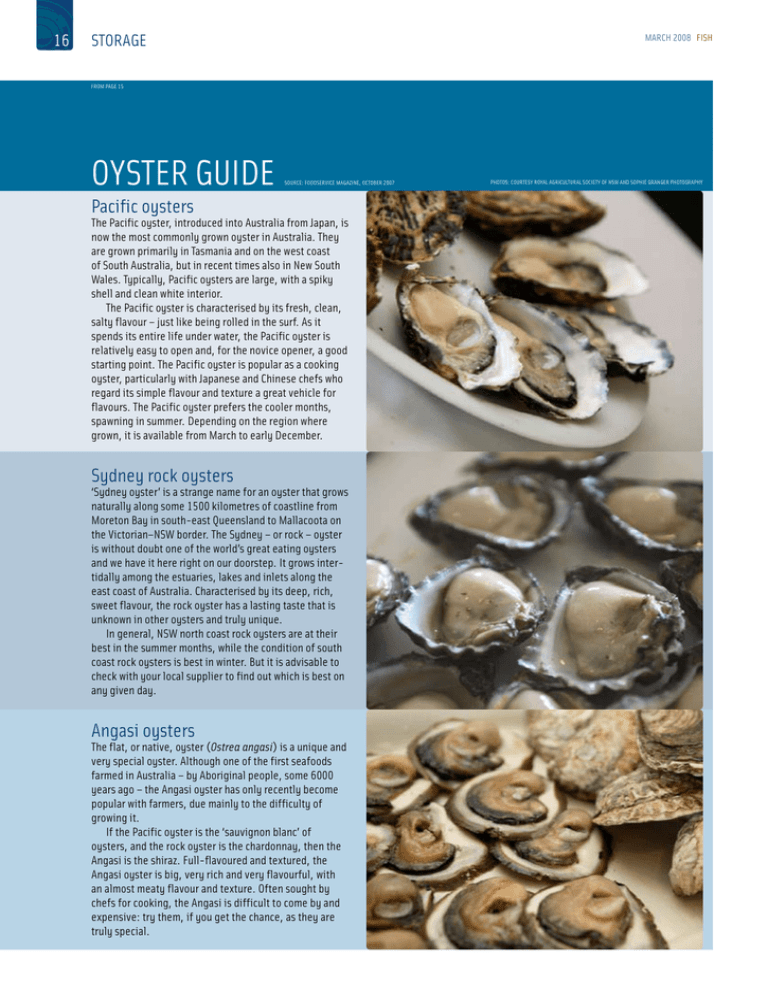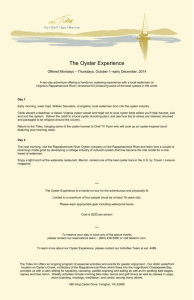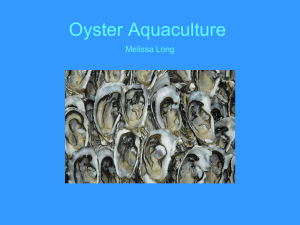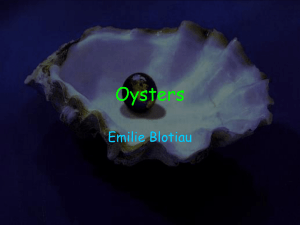pacific oysters sydney rock oysters angasi oysters
advertisement

16 sTorage MarcH 2008 FisH FroM page 15 oysTer guide source: Foodservice Magazine, ocToBer 2007 pacific oysters The pacific oyster, introduced into australia from Japan, is now the most commonly grown oyster in australia. They are grown primarily in Tasmania and on the west coast of south australia, but in recent times also in new south wales. Typically, pacific oysters are large, with a spiky shell and clean white interior. The pacific oyster is characterised by its fresh, clean, salty flavour – just like being rolled in the surf. as it spends its entire life under water, the pacific oyster is relatively easy to open and, for the novice opener, a good starting point. The pacific oyster is popular as a cooking oyster, particularly with Japanese and chinese chefs who regard its simple flavour and texture a great vehicle for flavours. The pacific oyster prefers the cooler months, spawning in summer. depending on the region where grown, it is available from March to early december. sydney rock oysters ‘sydney oyster’ is a strange name for an oyster that grows naturally along some 1500 kilometres of coastline from Moreton Bay in south-east Queensland to Mallacoota on the victorian–nsw border. The sydney – or rock – oyster is without doubt one of the world’s great eating oysters and we have it here right on our doorstep. it grows intertidally among the estuaries, lakes and inlets along the east coast of australia. characterised by its deep, rich, sweet flavour, the rock oyster has a lasting taste that is unknown in other oysters and truly unique. in general, nsw north coast rock oysters are at their best in the summer months, while the condition of south coast rock oysters is best in winter. But it is advisable to check with your local supplier to find out which is best on any given day. angasi oysters The flat, or native, oyster (Ostrea angasi) is a unique and very special oyster. although one of the first seafoods farmed in australia – by aboriginal people, some 6000 years ago – the angasi oyster has only recently become popular with farmers, due mainly to the difficulty of growing it. if the pacific oyster is the ‘sauvignon blanc’ of oysters, and the rock oyster is the chardonnay, then the angasi is the shiraz. Full-flavoured and textured, the angasi oyster is big, very rich and very flavourful, with an almost meaty flavour and texture. often sought by chefs for cooking, the angasi is difficult to come by and expensive: try them, if you get the chance, as they are truly special. pHoTos: courTesy royal agriculTural socieTy oF nsw and sopHie granger pHoTograpHy





